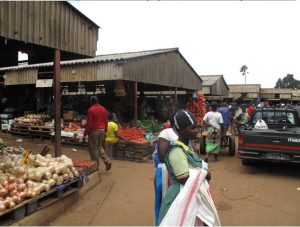If defining and executing a business case was easy, many farmers and traders in developing countries would have become business people. In spite of persistent emphasis on agribusiness from development organizations and academic institutions, business schools are not producing entrepreneurs able to translate agricultural resources from ground zero into reliable jobs, incomes and better lives for poor communities.

Missing the essence of business
Although those promoting top-down development initiatives have hijacked farming as business, they continue to miss the fact that the main essence of a business is building it around a product or service and a niche market. The more the products the more the business models. Which means a community that produces more than 50 agricultural commodities should have diverse business enterprises as opposed to copycat businesses where everyone tries to do what everyone else is doing.
If properly thought through, some models can become separate business units, making it easy to assess the viability of each business model. Contrary to views from financial institutions, money is just a catalyst or additive like salt in relish. Without meat or vegetables, salt is useless. The salt owner should cultivate relationships with those who produce meat, potatoes, tomatoes and other products. While some commodities need salt, there is an increasing number of consumers who no longer need salt in their food for different reasons including health issues.
Confusing a business model with a business plan
The majority of agribusinesses promoted through value chains and the notion of farming as a business lack robust models. Promoters confuse a business plan with a business model yet a plan just assists in executing a model. A model is an attempt to turn your innovation into a profit or your business into economic value. As a reminder, the following pillars are fundamental in building a business model:
- The owner – who will supply the product or provide the service.
- Value proposition – What need or solution do you want to address? Have you addressed a need? Absence of a value proposition is the main reason developing countries are awash with copycat entrepreneurs who just watch what another person is doing and try to imitate rather than focusing on the customer. A need is a value proposition. Financial institutions tend to compete in the same sector without taking time to understand loan needs from the customer’s perspective. To what extent is a reasonable interest rate a solution to farmers? What if loan amount is the real need? Or the main issues could revolve around unfavorable conditions that insist on collateral that is not in line with the business.
- Who are you targeting? – Market segmentation. Are you targeting farmers, traders, transporters and other specific actors? Answering these questions will enable you to model in line with business behavior. Most models, especially financial ones, are locked in bureaucratic and compliance systems that may divert from the essence of the business. Sometimes it is important to create your own market niche that can inform what products to provide.
- Distribution channel – What is your distribution channel? How are you going to reach your customers cost-effectively? While some banks have put up brick and mortar structures in agricultural markets in order to establish presence, other channels like mobile money could effectively support the entire value chain. If Point of Sale (POS) machines are missing at other value chain nodes, clients get stuck. Loan disbursement will not be useful if traders cannot transact from rural agro-dealers where they stay. Neither can loan repayment be smooth. When clients get money, they want to use it somewhere. That is why it is critical to understand the destination where money will end up being used and main uses. Grasping the destination enables financial institutions to build on other networks like between farmers and agro-dealers who also know what farmers need. Concentrating on the immediate client is a big mistake, particularly in the current networked economy.
- Have you identified niche markets? Invest in building relationships or ride on partners who have already built networks. That is how you can build more models and networks.
- Best use of resources – resource configuration. Should you go and rent a building or work through agents?
- Core competencies – What are the skills, knowledge, abilities, expertise and attitudes available for supporting all other pillars?
- Networks – You cannot work in isolation. Which partners are you going to collaborate with?
Concentrate on few benefits and a core message
Key aspects of business modeling include not capturing everyone. Start with early adopters who can assist you in refining your model as you go. Do not dream of creating wealth if you are not creating wealth for others. Starting with others provides a sustainable base for your wealth. From early adopters you are able to refine your strategy. Most business models have too many messages which end up confusing potential clients. Concentrate on a core message and few benefits. Should you go the revenue route or the gross margin route (what is your pie)? Or the operational route (how can we reduce our expenses?) or the working capital route (should we have cash all the time?) or the finance model route (what is our source of finance?).
Appropriate knowledge and skills are important in capturing opportunities offered by existing resources. In the majority of developing countries, value chain actors and government departments like extension services do not have the advanced analytical capabilities needed to get maximum value from data collected on different agricultural commodities for years. As a result collected datasets are not used to help farmers in building robust agribusiness cases.
charles@knowledgetransafrica.com / charles@emkambo.co.zw / info@knowledgetransafrica.com
Website: www.emkambo.co.zw / www.knowledgetransafrica.com
eMkambo Call Centre: 0771 859000-5/ 0716 331140-5 / 0739 866 343-6
